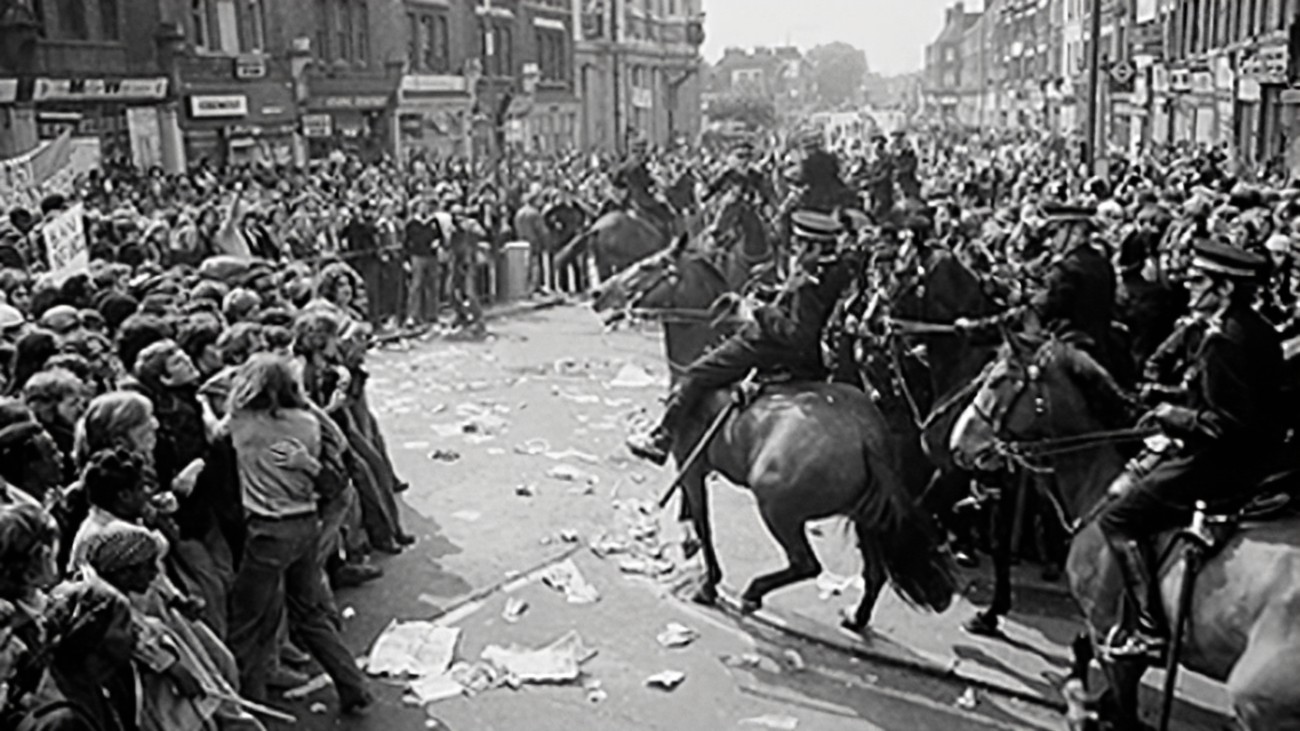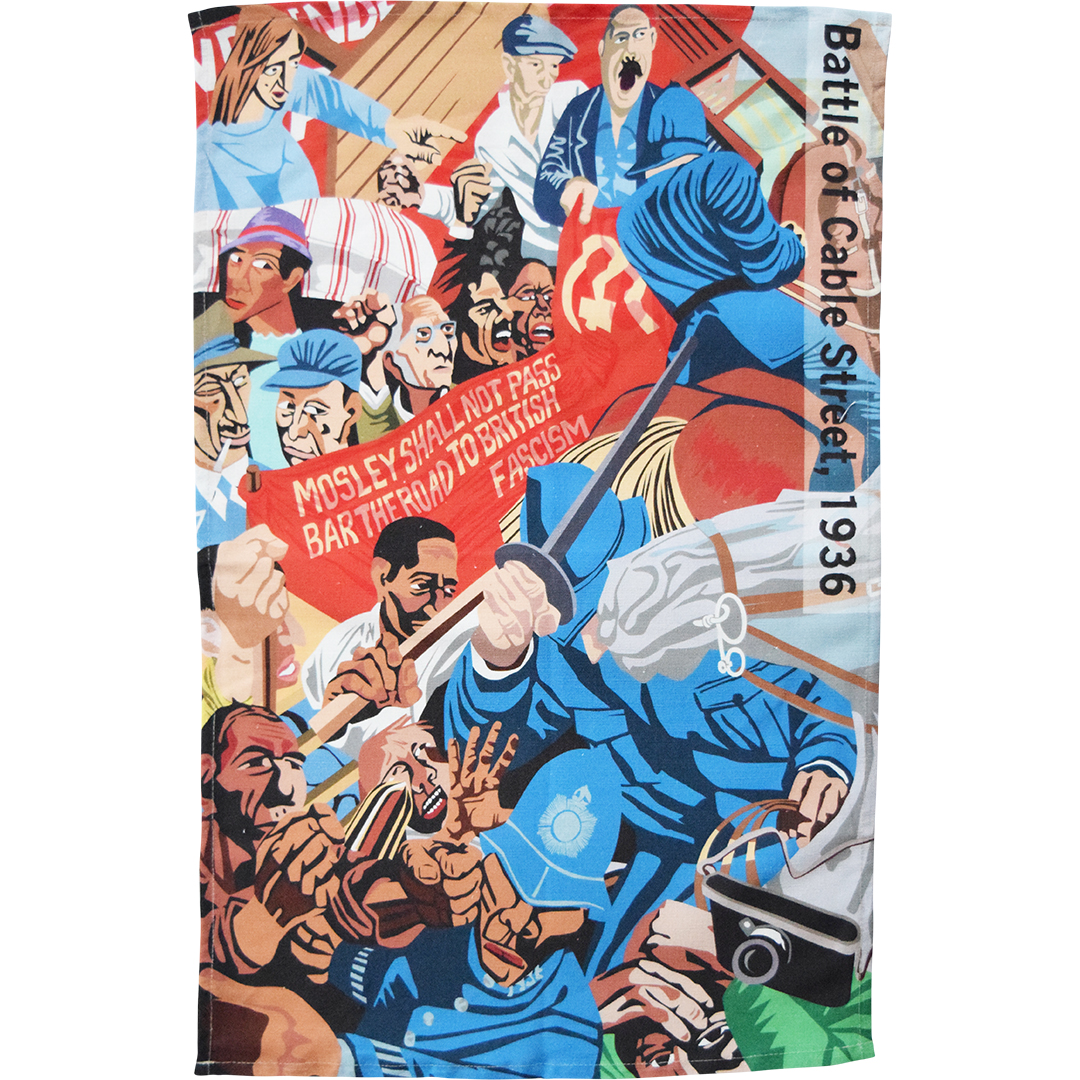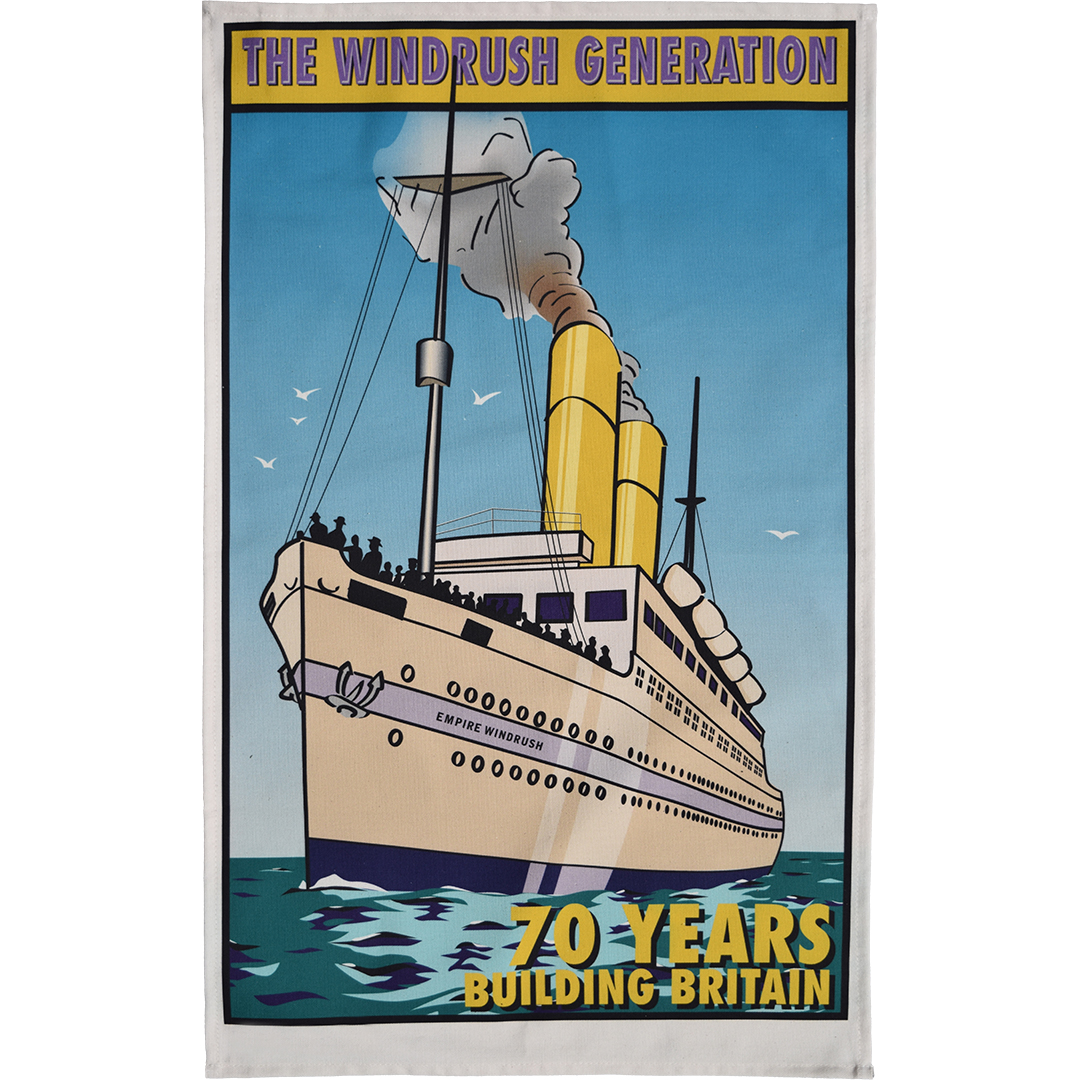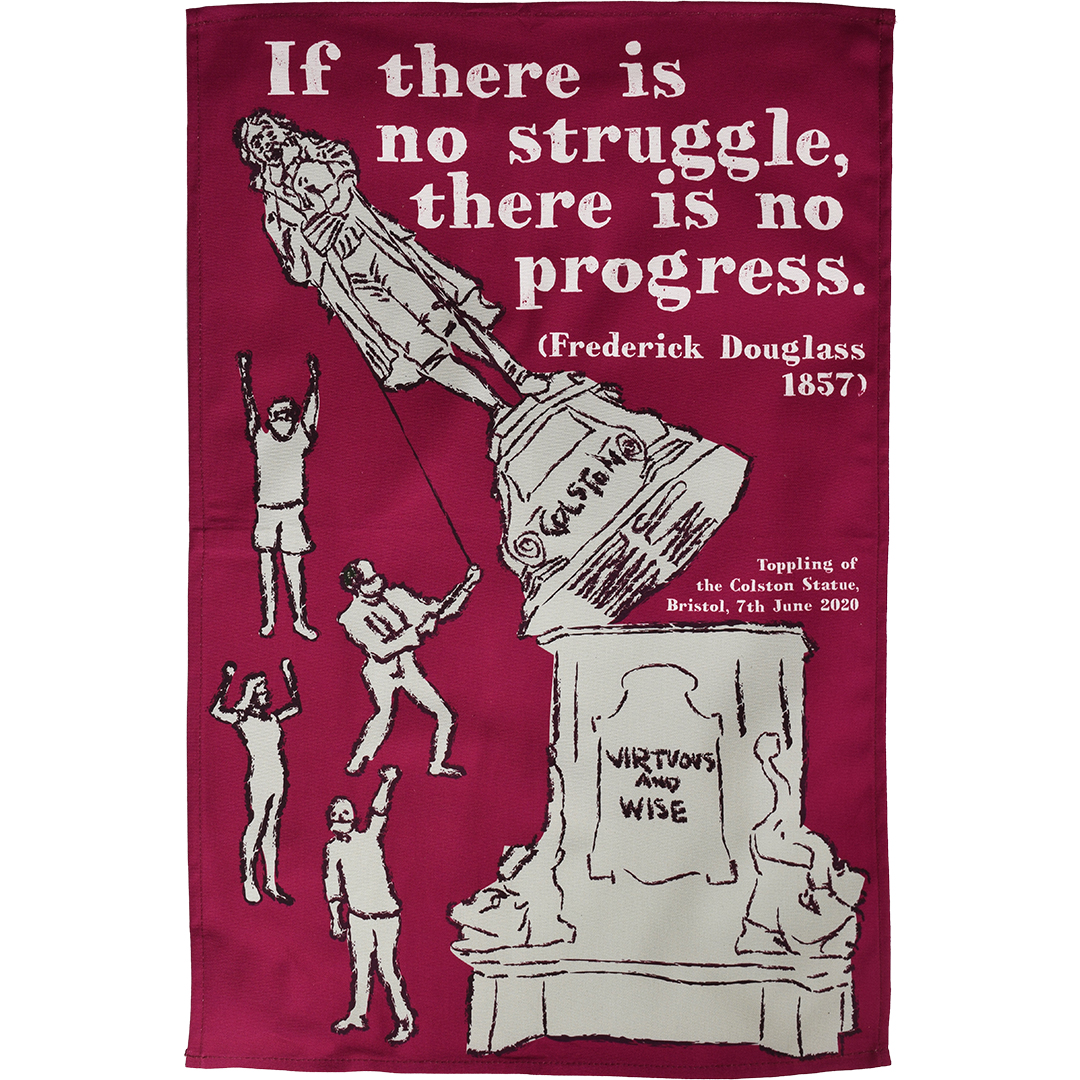They Shall Not Pass: The Battle of Lewisham
Posted by Pete on 17th Aug 2023

On 13th August in 1977, anti-fascist Londoners sent the National Front packing...
London has a proud tradition of anti-fascist politics.
In 1936, chanting the Spanish Civil War slogan "They Shall Not Pass", the people of the East End drove out Oswald Mosley’s British Union of Fascists at the Battle of Cable Street.
But Far Right politics in Britain persisted.
By the 1970s, British fascism had become reincarnated in the National Front (NF), which promoted racial hatred against ethnic minorities.
There's a long tradition of anti-fascist resistance in London, including the iconic Battle of Cable Street in 1936
Click to view our Battle of Cable Street tea towel
During the postwar decades, British society had become more multiracial as people moved to Britain from its current and former colonies in Asia, Africa, and the Caribbean.
They were often subjected to racist discrimination in society and by the state. But they never took it lying down.
Immigrants, like the organisers of the Bristol Bus Boycott in 1963, mobilised against racism in Britain.
At the same time, however, British fascists saw a political opportunity.
The National Front began trying to stoke white racism in the context of an increasingly diverse society. The NF hoped that racial hatred would divide the working class and wider society in Britain, creating the conditions in which fascist politics could thrive.
As Britain rebuilt after World War Two and expanded its state infrastructure, British society became much more diverse
Click to view our Windrush tea towel
In Lewisham, in south-east London, this strategy had seen the NF become an ominously powerful political force by the late 1970s.
There was a large Black British and Asian British population in Lewisham, and the National Front took every opportunity to make their existence more precarious.
One National Front ideologue, Martin Webster, told the press:
“we believe that the multi-racial society is wrong, is evil, and we want to destroy it.”
Moreover, the police force in Lewisham seemed to be putting more effort into harassing ethnic minorities in the area than dealing with increased levels of racist violence by white thugs.
These two threads – fascist agitation and racist policing – became entwined during the summer of 1977.
In late May, the police arrested 21 young black people in Lewisham in connection with a series of robberies.
The force then claimed that the black defendants formed part of a gang responsible for 90% of street crime in south London.
The National Front jumped on this case, and tried to turn it into a racist wedge issue about ‘law and order’.
It planned a protest march from New Cross to Lewisham under a banner reading “Stop the Muggers”.
It was the same strategy that Oswald Mosley had used against the Jewish citizens of the East End – and it failed just as miserably.
To this day, there's a strong tradition of anti-racist activism in Britain - including in 2020 when Bristolians toppled a statue of slave-trader Edward Colston
Click to view our Edward Colston Statue tea towel
Rather than deepen racial division, the NF march helped to consolidate anti-racist solidarity in London.
A wide range of different groups from the local community and the labour movement came together to oppose the National Front.
On 13 August 1977, when the march was set to take place, well over 5,000 people were mobilised in Lewisham for counter-demonstrations. Their numbers dwarfed the measly 500 NF marchers.
The Met Police, which had refused local demands that the brazenly racist march be called off, devoted huge resources to protecting the fascist marchers against anti-fascist protestors.
So, as at Cable Street, most of the street-fighting took place between counter-demonstrators and the police.
But the scale of popular mobilisation was incredible, and the police eventually had to divert the NF marchers: rather than hold their racist rally in Lewisham Town Centre, the National Front gathered briefly in a car park before scurrying away to the train station.
When the police lost control of the area, the protestors took over the middle of Lewisham to defend it against the fascists. They even proclaimed a temporary People’s Republic around the clocktower.
Once again, the people of London had overcome fascism in defence of equality and freedom.



